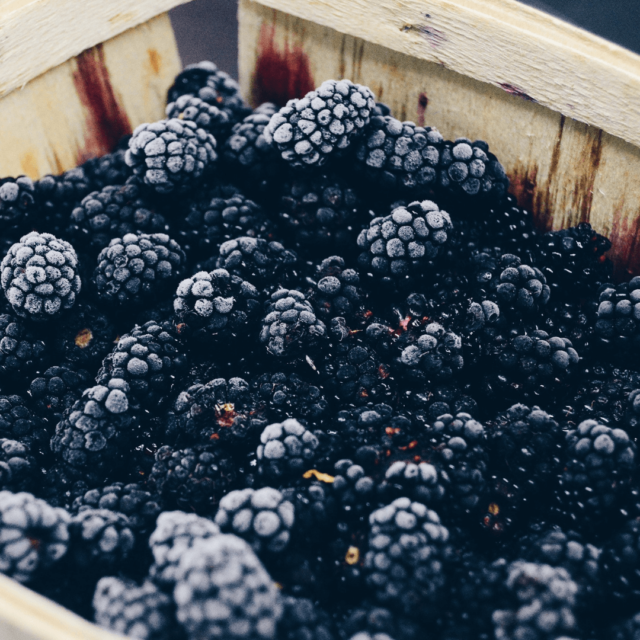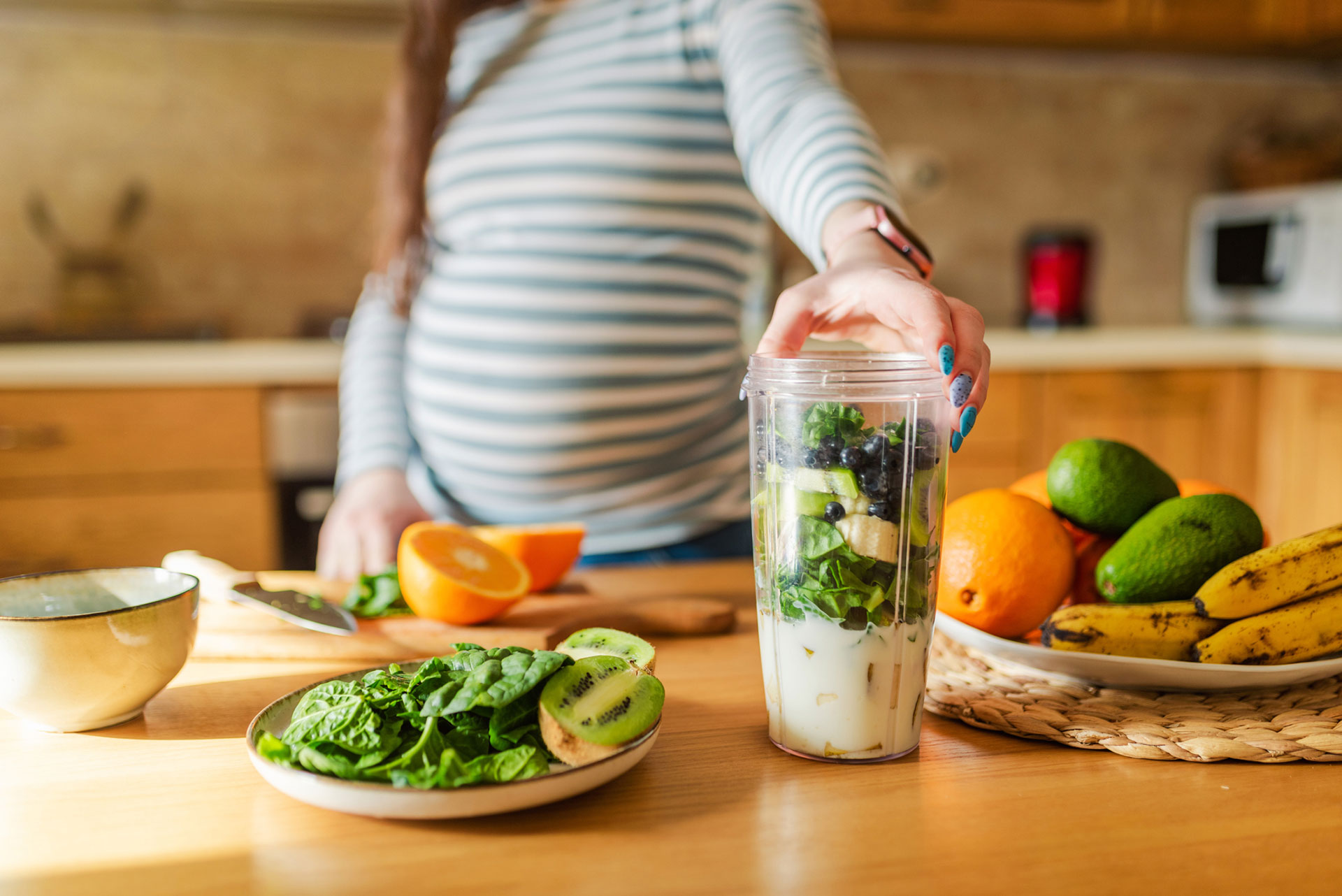“Top 10 Fertility Foods” | myMindBodyBaby
I’ve always been one of those people who believed I could “fix” anything with food. As a nutritionist for almost 12 years, I saw time and time again the power and healing that foods can have on a body.
After years of trying to conceive {my story here} and then being diagnosed with “unexplained infertility,” it became my mission to use my knowledge of food to “fix” my infertility. And while I knew logically that food alone wasn’t going to be the sole answer, I also knew ramping up my efforts to further support my body could only help my situation.
So what fertility foods did I focus on?
While I definitely gave the spotlight to some foods over others, I do need to highlight that it was the foods that I removed that also became a part of my story during this time.
About 5 years ago I removed gluten from my diet for other health reasons. Being that this inflammatory food was already gone (more on inflammation shortly), I spent the bulk of my energy removing as much sugar as possible. My days as a nutritionist had served me well, so sugar was relatively low anyways. However, there is room for improvement for everyone, right?
Of course, there are the obvious sugars that should be immediately removed or drastically reduced. These include:
- pop
- candy
- pastries and cookies/cakes
- sugar in coffee/tea
- sugary cereals
- alcohol
Don’t forget about the hidden sources of sugar:
- white bread/pasta/rice and potato
- fruit juices
- flavored yogurts
- granola and other seemingly “healthy” packaged foods
- Booster juice (and other similar juice and smoothie bars) and pre-made smoothies
- “healthy” protein powders and bars
26]
Inflammation information.
When you ask people who have had or are struggling with infertility, why they think they are having issues conceiving, much of the time they will tell you about a specific diagnosis such as diminished ovarian reserve, PCOS, or a husband with a low sperm count. Or, like me, “unexplained infertility”. Not very often will you hear someone say “I’ve got too much inflammation in my body”. But perhaps this needs to be a bigger conversation. Did you know that hormones (and foods!) can actually increase or decrease inflammation? So if your hormones are all out of whack, consider that perhaps inflammation might also be, and inflammation can be extremely problematic when trying to conceive. More on that here.
The low-down on hormones.
Let’s look at it this way. As women, we know that our bodies are ever-changing over the course of the month. The ebb and flow of hormones change often – sometimes we notice it (cue chocolate cravings and Rom-Com’s) and sometimes we don’t. What we also may or may not notice (depending on how body aware you are) is how certain foods will affect our hormones. A common example would be related to how sugar affects the body. After too much sugar is consumed, a hormone called insulin is secreted in higher amounts than would be typically needed for a meal, and its job is to help bring that sugar into your cells to be used for energy. Too much insulin over a long period of time can lead to insulin resistance which can then pose problems for fertility health (and create excess inflammation).
So let’s dive into those fertility foods we DO want to focus on that will keep our hormones and inflammation in check.
Nutritionist approved top 10 fertility foods.
Pumpkin Seeds
These babies are loaded with zinc. Why should you care? Well, zinc among MANY other things helps to balance hormones (playing a role in important hormonal shifts like menstruation and ovulation), supports the immune system, and plays a vital role in sperm health. Adequate zinc content of sperm is needed for function and fertilization. Check out our Nuts for Nuts and Seeds for Seeds recipe to help incorporate pumpkin seeds into your diet.
Sauerkraut or kimchi
Fermented foods are on the top of my list of fertility foods simply for their gut-supporting qualities. Fermented foods can help improve the quantity and quality of bacteria or flora in our intestinal system. Better bacteria equal improved digestion, reduced inflammation, and better blood sugar and hormonal regulation.
Avocado
These creamy creations are loaded with heart-healthy, blood sugar-balancing omegas – which by the way is an essential building block of hormones. I use this in excess on salads, in smoothies, and topped with sea salt on a rice cake as a quick snack. Other awesome sources of omega include raw nuts and seeds, olive oil, and coconut oil.
Blackberries
Antioxidants are absolutely essential for helping to reduce free radical damage in our body. As I said in my Warming Moroccan Winter Salad blog “A low intake of antioxidant nutrients was associated with a poor semen quality” (3) and “Sufficient intake of antioxidants also promotes female reproductive functions”. (4) I also love that berries and, as far as fruit goes, are fairly low in sugar. So add them to your smoothies, put them on your salads and mix them with nuts for a tasty afternoon snack.
Lentils
Iron is mucho important as our 5th fertility food. Menstruating women are at a higher risk of iron deficiency which could impact egg quality. In one study, “Consumption of iron supplements and nonheme iron from other sources may decrease the risk of ovulatory infertility.” And, by the way, lentils are also a fantastic plant-based protein source that helps to keep you satiated, balance blood sugar and hormones!
Spinach
Chock-full of folate, this leafy green is an easy addition to most meals. Add to smoothies, salads, or an omelet and you will hardly know it’s there. In the world of fertility, folate has been shown to help prevent pregnancy complications such a neural tube defect – an unfortunate problem with a baby’s spinal cord.
17]
Mushrooms (and eggs)
Vitamin D is a must for most, but definitely for those prepping for pregnancy. Many of us are in fact deficient and therefore require supplementation. However, mushrooms (plant-based) and eggs for those who eat them, are sources of vitamin D that we can get from our diet. Why D? This “sunshine” vitamin helps to balance sex hormones, supports the immune system, and helps to regulate hormones and the menstrual cycle.
Turmeric
Not a common part of North American diets, but I’d argue one of the most potent antioxidants and anti-inflammatory foods out there. For anyone struggling with any type of inflammatory disorder such as endometriosis, turmeric is a PERFECT introductory food to experiment with.
“In vitro testing has found that this compound scavenges free radicals and protects DNA from oxidative damage. Interestingly, not only does curcumin have its own antioxidant properties, it also appears to enhance the strength of other antioxidants,” shares Dr. Edward Group DC, NP, DACBN, DCBCN, DABFM, for Global Healing Center.
Brazil nuts
Are rich in selenium, another nutrient any woman trying to conceive should be aware of. Just a few Brazil nuts a day can actually top up your levels. Selenium has been found to help promote healthy follicles in the ovaries!
Broccoli
I’m loving broccoli as it serves multiple purposes. 1. It’s high in fiber, which not only keeps our pipes working properly and feeling good, but the scrubbing action that fiber provides to the intestinal system keeps digestion and inflammation in check. Fiber also helps to remove excess estrogen from the system. 2. Broccoli and other cruciferous veggies like Brussels sprouts and cauliflower are high in indole-3-carbinol (I3C). This compound helps with estrogen metabolism-a hormone when in excess can cause fat gain, irregular periods, and decreased sex drive.
Understanding how food influences our bodies is an important part of any fertility journey. Whether you are just starting out or have been struggling for awhile being proactive and empowering yourself with even just basic information about food will take your health to that next level. And of course, if you need a little assistance, we’ve got it all bundled up and ready for you in either our Preconception or Infertility Fitness and Nutrition Guides.
30]




